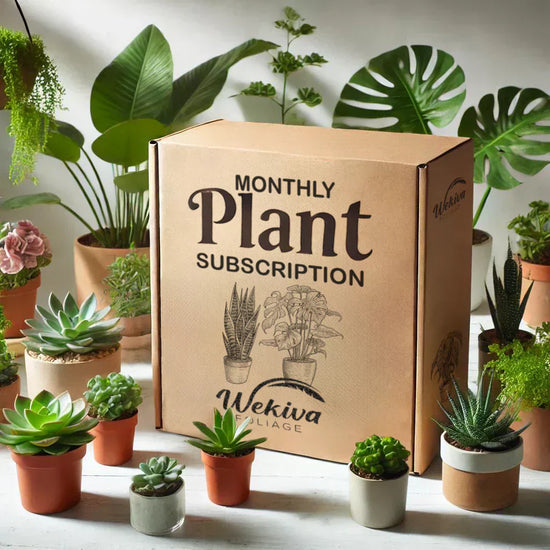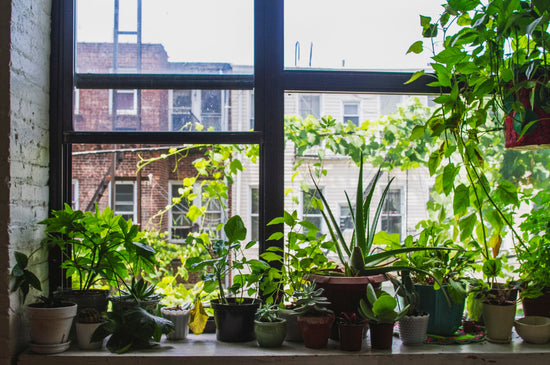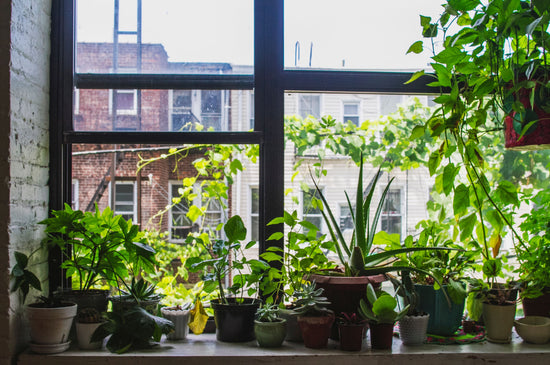What Type of Water Is Best for Your Plants?
Watering is a fundamental part of plant care, but have you ever wondered if the type of water you use affects your plants' health? While most plants are forgiving, the minerals, chemicals, and pH levels in different water types can significantly impact their growth over time. Understanding the best water for your indoor plants can help you keep them thriving for years to come.
Types of Water and Their Impact on Plants
-
Tap Water
- Description: Readily available and convenient, tap water varies greatly depending on your location. It often contains chlorine, fluoride, and minerals.
- Pros: Easy access and generally safe for most hardy plants.
- Cons: Chlorine and fluoride can cause leaf browning or tip burn, particularly in sensitive plants like spider plants or peace lilies.
- Tips: Let tap water sit out for 24 hours to allow chlorine to evaporate before using it on your plants.
-
Distilled Water
- Description: Purified water with all minerals and impurities removed.
- Pros: Ideal for sensitive plants that are prone to mineral buildup or salt damage, such as calatheas.
- Cons: Lacks beneficial minerals that some plants need for optimal growth.
-
Rainwater
- Description: Naturally soft water that is free of added chemicals, making it an excellent choice for most plants.
- Pros: Rich in nitrogen and other natural compounds that promote healthy plant growth.
- Cons: Collection and storage can be inconvenient, and rainwater may carry pollutants in urban areas.
-
Filtered Water
- Description: Tap water that has passed through a filter to remove impurities like chlorine and heavy metals.
- Pros: Balanced and free from most harmful chemicals, making it suitable for a wide range of plants.
- Cons: Requires a water filter system, which can be an added expense.
-
Bottled Spring Water
- Description: Water from natural springs, often containing beneficial minerals.
- Pros: Provides essential minerals for healthy growth.
- Cons: Expensive and not eco-friendly due to plastic packaging.
-
Softened Water
- Description: Water treated with salts to reduce hardness.
- Pros: Gentle on household plumbing.
- Cons: High sodium levels can harm plants by interfering with water absorption and causing soil compaction. Avoid using softened water for plant care.
Factors to Consider When Choosing Water for Your Plants
-
Sensitivity to Chemicals
- Plants like spider plants, calatheas, and dracaenas are particularly sensitive to fluoride and chlorine, making filtered or distilled water better options.
-
Mineral Requirements
- Some plants, like succulents and cacti, benefit from minerals found in spring or tap water, as long as the water is not too hard.
-
pH Levels
- Plants generally thrive in water with a neutral pH (around 7). If the water is too acidic or alkaline, it may affect nutrient absorption.
-
Watering Frequency
- If you frequently water your plants, using rainwater or filtered water can help reduce the buildup of harmful chemicals or salts in the soil.
How to Improve Water Quality for Plants
- Let Tap Water Sit: Allow chlorine to evaporate by letting water sit for 24 hours before use.
- Use a Water Filter: Install a filter to remove chemicals and impurities from tap water.
- Collect Rainwater: Set up a rain barrel to gather natural water for your plants.
- Test Your Water: Use a water testing kit to check for pH and chemical levels to ensure compatibility with your plants.
FAQs About Watering Plants
Q: Can I use boiled water for plants?
A: Boiling water removes some impurities but not all. Let it cool before using it on your plants.
Q: How do I know if my water is harming my plants?
A: Look for signs like browning leaf tips, yellowing leaves, or white residue on the soil, which may indicate chemical or mineral buildup.
Q: Is it okay to use tap water on all plants?
A: Most plants tolerate tap water, but sensitive species may benefit from filtered, rain, or distilled water.
Q: Should I water my plants with cold or warm water?
A: Room-temperature water is best, as extreme temperatures can shock plant roots.
Choosing the right water for your plants ensures they stay healthy, vibrant, and free from common issues like chemical damage or nutrient deficiencies. By understanding your plants’ needs and the quality of your water, you can provide them with the best care possible.





